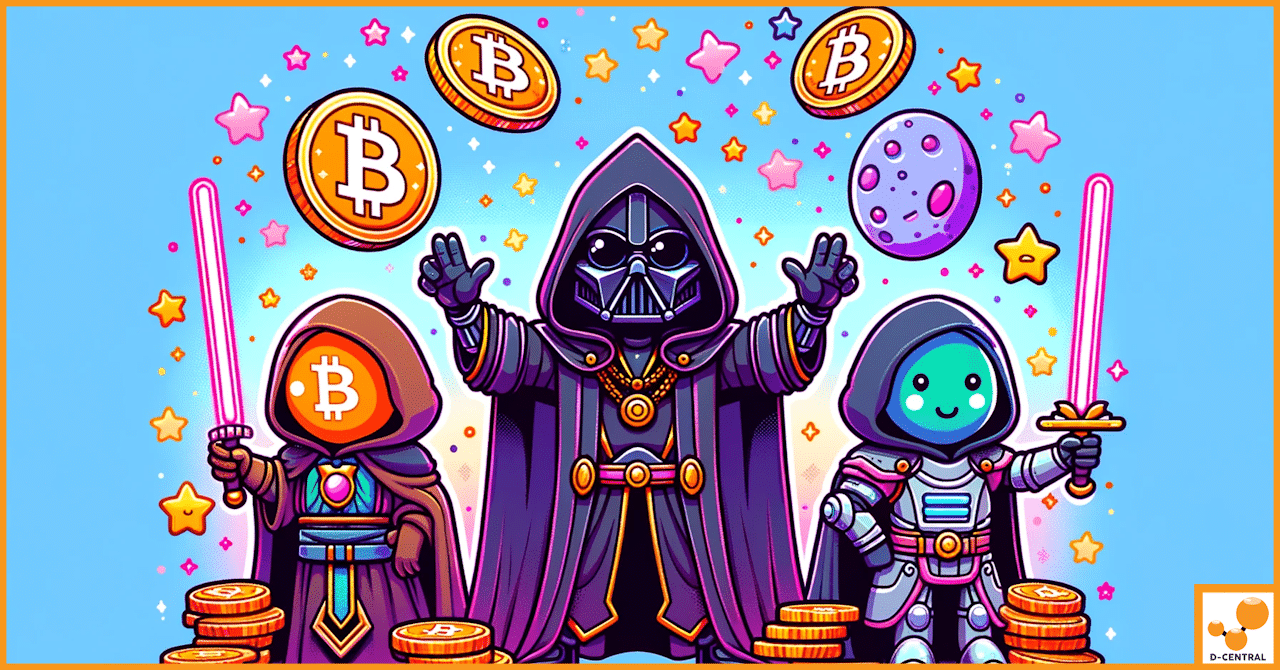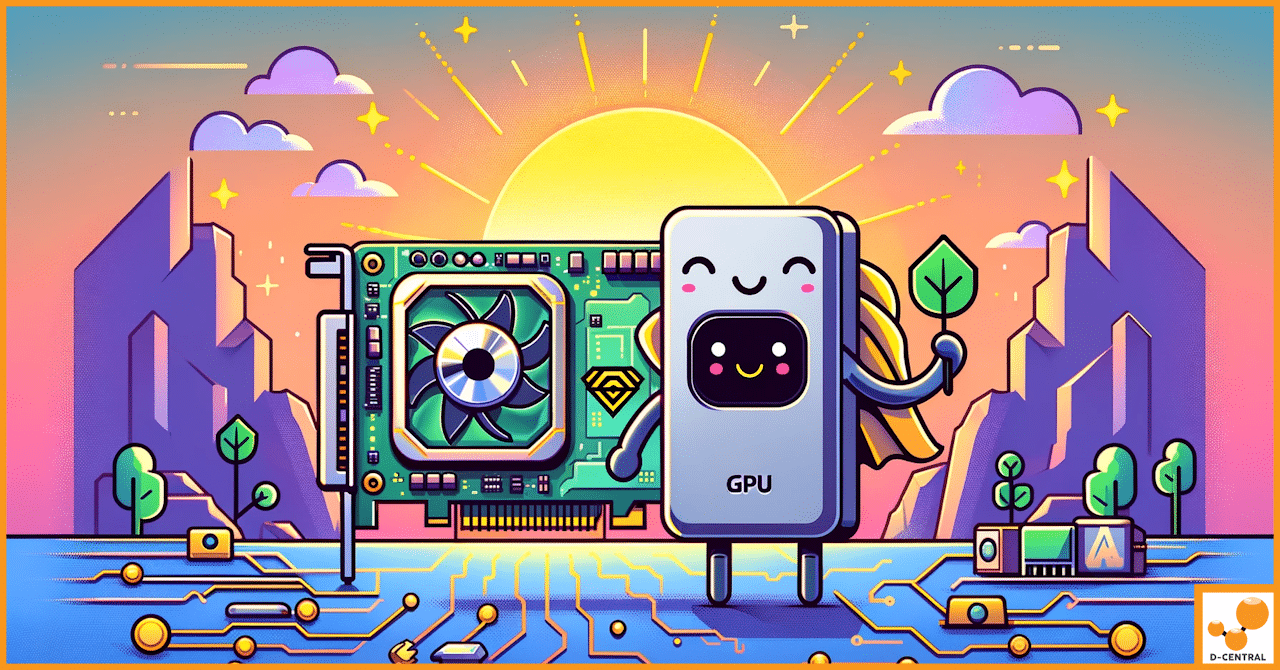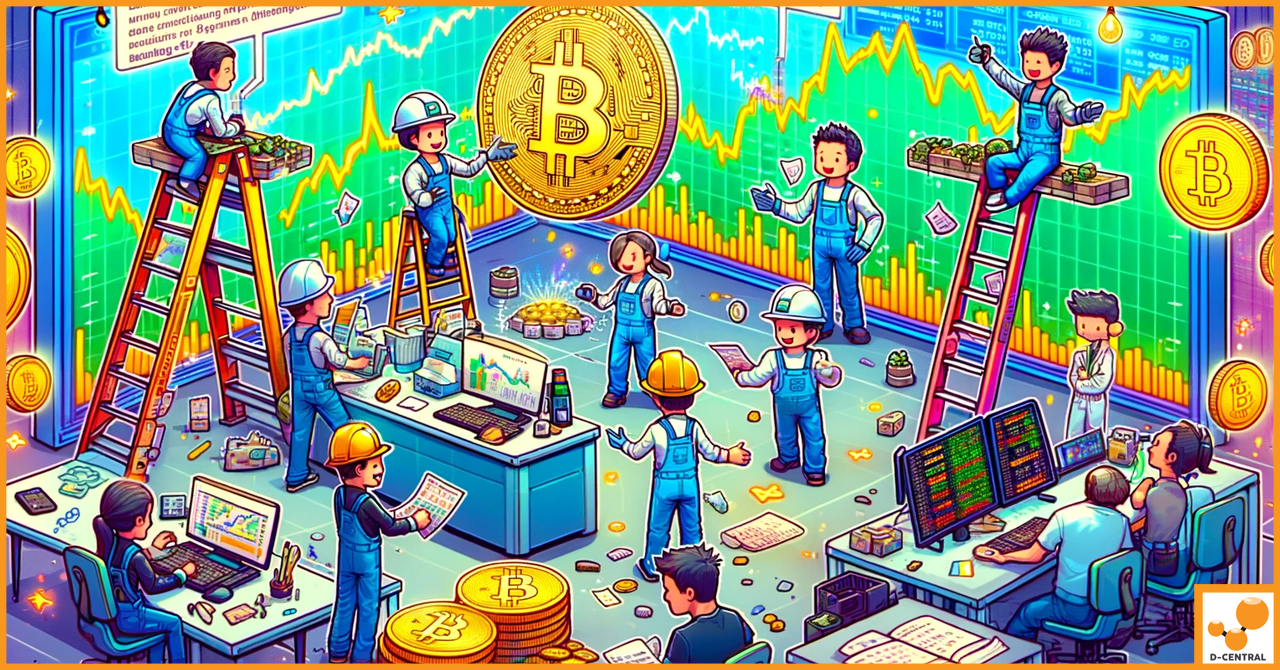
How to Repurpose Excess Bitcoin Miner Heat
Bitcoin mining, the process of validating transactions and securing the Bitcoin network, is notoriously energy-intensive. This computational race to solve
4479 Desserte Nord Autoroute 440, Laval, QC H7P 6E2

In both the enchanting realm of the Star Wars universe and our tangible reality, the concept of money plays a pivotal role in shaping the fabric of societies. Galactic Credits, the lifeblood of commerce and politics in a galaxy far, far away, parallel the emergence and impact of Bitcoin in our modern world. These currencies, though existing in vastly different realms, offer a unique lens through which we can examine the profound influence of monetary systems on societal structures and dynamics.
The Star Wars saga, with its tales of interstellar conflict and governance, introduces Galactic Credits as a central tool for economic control within the Galactic Empire, mirroring the traditional financial systems we are accustomed to. In contrast, our world has witnessed the advent of Bitcoin, a digital currency that defies centralized control, championing a decentralized approach to financial transactions. Despite their contrasting backdrops—one a fantastical universe of spacefaring civilizations, the other our own rapidly evolving technological landscape—both Star Wars and the real world grapple with similar economic principles: the struggle for control, the quest for stability, and the pursuit of innovation in monetary systems.
As we embark on this exploration of currencies from two distinctly different universes, we uncover intriguing parallels and divergences, offering us a deeper understanding of not just economics, but of the universal themes of power, freedom, and change that resonate across galaxies and generations.
In the vast and complex universe of Star Wars, Galactic Credits serve as the backbone of the galactic economy, pivotal in shaping the socio-political landscape of the galaxy. These credits, often just referred to as ‘credits’, are more than just a means of transaction; they are a symbol of the centralized power that governs the interstellar trade and the flow of goods across countless star systems.
Galactic Credits, under the aegis of the Galactic Republic and later the Galactic Empire, facilitate not just commerce but also act as instruments of political influence. Their value and acceptance across the galaxy highlight the deep interconnectivity of different worlds, tying together diverse planets and species into a single economic framework. The stability and the value of these credits are indicative of the political health and prowess of the governing body, be it the Republic or the Empire.
In this universe, where starships traverse the cosmos and planets teem with diverse life, Galactic Credits do more than just enable commerce – they symbolize the reach and control of centralized governance over the vast expanse of space.
The Galactic Empire’s control over the economy is a classic portrayal of centralization in a vast and diverse universe. This centralization is embodied by the existence and operations of the InterGalactic Banking Clan, a powerful financial institution that wields considerable influence over the galactic economy. The Clan’s role in overseeing the issuance and regulation of Galactic Credits speaks volumes about the concentration of economic power in the hands of a few.
This centralization is not without its implications. It allows the Galactic Empire to exert considerable control over its territories, using economic means as a subtle yet powerful tool of governance. The stability of the Galactic Credit is directly tied to the Empire’s strength, making it a barometer for the Empire’s grip over the galaxy.
However, this centralization also breeds discontent and resistance, as seen in the rise of the Rebel Alliance. The Alliance’s fight is not just against the political tyranny of the Empire but also against its economic dominion. The Galactic Credits, in this context, become a symbol of the Empire’s overreach, a stark reminder of the control that a centralized power can exert over diverse and far-reaching domains.
In the Star Wars universe, the Galactic Credits and the centralization of the galaxy’s economy are more than plot devices; they are reflections of the timeless themes of power, control, and resistance – themes that resonate with our understanding of economic structures and their impacts on society.
In our real world, akin to a narrative from science fiction, Bitcoin has emerged as a groundbreaking development in the financial landscape. Born from the innovative vision of Satoshi Nakamoto, Bitcoin is a digital currency that operates on a decentralized network. At its core, Bitcoin is built upon a technology called blockchain, a distributed ledger that records all transactions across a network of computers. This means that Bitcoin is not controlled by any single entity or government, a stark contrast to traditional fiat currencies.
Bitcoin’s decentralized nature is its most defining characteristic. It allows for peer-to-peer transactions without the need for intermediaries, such as banks. This aspect not only speeds up transactions but also reduces transaction costs, making it an attractive alternative for global financial exchanges. Furthermore, Bitcoin is built on the principle of limited supply – only 21 million bitcoins can ever be mined, which counters inflationary pressures typically seen in fiat currencies.
As we move further into the digital age, Bitcoin is increasingly becoming a part of the mainstream economic conversation. It represents not just a new form of currency but a new approach to financial autonomy and security, reshaping how we understand and interact with money.
The contrast between Bitcoin and the Galactic Credits of the Star Wars universe is a tale of two economic models: decentralization versus centralization. Galactic Credits represent a centralized economic system, controlled and distributed by a central authority – the Galactic Empire and its financial institutions like the InterGalactic Banking Clan. This centralization allows for a unified economic system but at the cost of autonomy and potential freedom of the individual entities and systems under its control.
Bitcoin, in contrast, is the epitome of a decentralized financial system. Free from the control of any single authority, it empowers individuals to engage in financial transactions directly with one another. This decentralization is not just a technical detail; it is a foundational ethos that champions individual liberty, privacy, and resistance to centralized control. In a way, Bitcoin could be seen as the currency of the Rebellion in our world, challenging the established financial order and offering an alternative path forward.
The divergence between these two models highlights fundamental differences in how societies can structure and manage their economies. While Galactic Credits streamline and unify under a single banner, Bitcoin celebrates diversity and independence in economic interactions. This contrast is more than a financial discussion; it’s a philosophical dialogue about the future of economic freedom and the role of individuals in shaping their financial destinies.
In a memorable encounter on the desert planet of Tatooine in “Star Wars: Episode I – The Phantom Menace,” a pivotal economic exchange takes place between Qui-Gon Jinn, a Jedi Master, and Watto, a local junk dealer. The crux of their disagreement lies in the value and acceptance of currency. Qui-Gon Jinn offers Galactic Credits for needed parts, but Watto refuses, stating, “Republic credits? Republic credits are no good out here. I need something more real.”
Republic credits? Republic credits are no good out here. I need something more real. Only money. No money, no parts, no deal!#Bitcoin a #StarWars Story. pic.twitter.com/ooaLIpRgox
— Jonathan Bratnerd (@KryptykHex) February 12, 2020
This scene encapsulates a fundamental challenge in economics: the value of a currency is not just intrinsic but is also determined by its acceptance and trust within a particular economic system. Galactic Credits, while possibly valuable in other parts of the galaxy, hold no worth in Watto’s corner of the universe, where they are not recognized as a medium of exchange. This highlights the limitations of a currency that, despite its widespread use, cannot bridge the gaps between differing economic systems and regions.
This brings us to a modern reflection in the form of Bitcoin. Could Bitcoin, with its decentralized and borderless nature, succeed where Galactic Credits failed on Tatooine? In many ways, Bitcoin represents an evolution in the concept of money. It’s not bound by national borders, central banks, or specific economic policies of any single country. Its digital nature allows for instant transactions across the globe, and its underlying blockchain technology ensures security and transparency.
However, the question of Bitcoin becoming a universally accepted standard is complex. While it offers numerous advantages, such as lower transaction fees, absence of exchange rate complications, and evasion of centralized control, it also faces challenges. These include price volatility, varying regulatory responses from governments worldwide, and a still-growing infrastructure for widespread daily use.
Bitcoin, much like any currency, relies on collective trust and recognition to function effectively. While it has made significant strides in gaining acceptance, it’s still a journey towards becoming a universally accepted standard. The journey of Bitcoin in our world echoes the challenges faced by Qui-Gon Jinn on Tatooine – bridging diverse economic systems under a universally accepted standard, but with the added complexity of evolving technologies and global economic dynamics.
In the Star Wars saga, the Galactic Empire epitomizes centralized control, wielding power over the galaxy with an iron fist. This centralization is not just a matter of political dominance but extends to economic control, as seen with the universal imposition of Galactic Credits. The Empire’s approach is one of uniformity and order, often at the expense of individual freedoms and local autonomy.
Contrasting sharply with this is the Rebellion, a collective of disparate groups united by their quest for freedom and self-determination. The Rebellion’s fight is as much against the economic and political stranglehold of the Empire as it is a battle for the soul of the galaxy. They represent a decentralized ideology, valuing diversity, local governance, and freedom over the monolithic and oppressive regime of the Empire. This ideological battle between centralization and decentralization is a core theme in the Star Wars narrative, illustrating the tensions that arise when a singular power seeks to exert control over a diverse and multifaceted society.
In our world, Bitcoin and the broader cryptocurrency movement symbolize a similar ideological rebellion against centralized financial systems. Traditional financial institutions, much like the Galactic Empire, represent a centralized approach to economic management, with national currencies, regulated banking systems, and government oversight. This structure, while providing stability and uniformity, often comes with limitations on privacy, autonomy, and global accessibility.
Bitcoin, by contrast, embodies the spirit of decentralization. Its underlying technology, blockchain, distributes control across a vast network, echoing the Rebellion’s decentralized structure. Bitcoin users value the currency for its resistance to censorship, its borderless transactions, and its potential to empower individuals against the backdrop of traditional banking systems.
The rise of Bitcoin and cryptocurrencies is thus a contemporary echo of the Rebellion’s fight in Star Wars. It’s a movement that challenges the status quo, advocating for a financial system that is more inclusive, transparent, and free from the control of a central authority. This ideological divide between centralization and decentralization in finance mirrors the clash between the Empire and the Rebellion, showcasing a universal struggle for control, freedom, and the right to determine one’s economic future.
In the evolving narrative of global finance, Bitcoin emerges as the modern-day equivalent of a rebel currency, challenging entrenched financial norms and institutions. Just as the Rebel Alliance in Star Wars sought to overthrow the dominating control of the Galactic Empire, Bitcoin confronts the centralized banking systems and traditional monetary policies of our world. This digital currency represents a significant shift away from the norms of financial control and governance, embracing a decentralized, peer-to-peer system that defies geographical boundaries and governmental oversight.
Bitcoin’s very inception was in response to the 2008 financial crisis, a direct challenge to the failures and vulnerabilities of the conventional financial system. Its decentralized nature ensures that no single entity can exert control over the entire network, embodying the principles of autonomy and resistance. In this sense, Bitcoin is not just a currency but a symbol of financial rebellion, an embodiment of the desire for a more open, transparent, and equitable financial system.
Bitcoin’s flexibility and adaptability have paved the way for a plethora of innovative uses beyond mere currency. One of the most notable is its role in enhancing financial inclusion. In parts of the world where traditional banking is inaccessible or unreliable, Bitcoin provides an alternative means of conducting transactions and storing value. It opens up new opportunities for global remittances, allowing people to send funds across borders quickly and with lower fees compared to conventional methods.
In the realm of digital contracts and decentralized applications, Bitcoin’s underlying technology, blockchain, is being leveraged to create smart contracts that execute automatically when certain conditions are met, without the need for intermediaries. This innovation extends to various sectors, including supply chain management, digital identity verification, and even in the arts through non-fungible tokens (NFTs), changing the way digital ownership and copyrights are handled.
Furthermore, Bitcoin has sparked a new approach to personal finance and investment. It’s seen as digital gold, a potential hedge against inflation and market volatility. This aspect has attracted both individual and institutional investors, integrating cryptocurrency into broader investment strategies.
Bitcoin, with its diverse applications and potential, is more than a currency; it’s a platform for innovation, offering new ways to think about and interact with the financial world. Its journey mirrors the evolution of the Rebel Alliance – starting as a small, disruptive force and growing into a significant player that challenges and transforms the established order.
The journey of Bitcoin and cryptocurrencies in shaping a decentralized economy is not without its challenges. Primary among these is the issue of volatility. Bitcoin, in particular, has experienced significant price fluctuations, a characteristic that can be attributed to various factors such as market demand, investor sentiment, and global economic events. This volatility, while presenting opportunities for traders, poses risks for those looking to use Bitcoin as a stable store of value or medium of exchange.
Regulation presents another significant challenge. The decentralized nature of Bitcoin puts it at odds with traditional financial regulatory frameworks. Governments and financial institutions worldwide are grappling with how to regulate cryptocurrencies without stifling their potential. This evolving landscape of regulation creates uncertainty, impacting adoption and innovation in the cryptocurrency space. Regulatory concerns range from ensuring consumer protection and preventing illicit activities to understanding the implications of cryptocurrencies on monetary policy and financial stability.
Despite these challenges, the decentralized economy heralded by Bitcoin and other cryptocurrencies offers immense opportunities for growth and societal change. One of the most significant opportunities is the democratization of finance. By providing access to a global financial system independent of traditional banking infrastructures, Bitcoin can empower unbanked and underbanked populations, fostering financial inclusion and equality.
Innovation is another area where cryptocurrencies shine. The blockchain technology underlying Bitcoin has far-reaching applications beyond financial transactions. It can revolutionize industries by providing transparent, secure, and efficient ways to record and transfer data. From supply chain management and voting systems to healthcare records and intellectual property rights, blockchain’s potential is vast and largely untapped.
Furthermore, cryptocurrencies are pushing the boundaries of how we understand and interact with money. They challenge the traditional fiat currency systems and open up new avenues for personal and institutional finance. This includes the emergence of decentralized finance (DeFi) platforms that offer financial instruments without the need for conventional intermediaries, such as banks or brokers.
The decentralized economy fostered by Bitcoin and cryptocurrencies is a realm of both challenges and opportunities. It mirrors the dynamic and evolving nature of any major technological or economic shift. As society continues to navigate this new financial landscape, the lessons learned and innovations born from this journey will undoubtedly shape the future of money and finance.
As we conclude our journey through the economic landscapes of the Star Wars universe and our own world, we recognize the profound parallels and contrasts between Galactic Credits and Bitcoin. These two currencies, though existing in vastly different realms, offer insightful perspectives on the evolution of economies. In the realm of fiction, Galactic Credits symbolize centralized control and uniformity under the Galactic Empire, reflecting themes of power and governance. In contrast, the real-world narrative of Bitcoin champions a decentralized approach, embodying ideals of autonomy, freedom, and innovation in finance.
The comparison between these two economic systems illuminates the timeless struggle between centralization and decentralization, control and freedom, tradition and innovation. It underscores the dynamic nature of economies and the continuous evolution of financial systems in response to societal needs and technological advancements.
Looking ahead, the future of currency seems poised at a fascinating crossroads, shaped by lessons from both the Star Wars universe and the ongoing Bitcoin revolution. The rise of digital currencies like Bitcoin suggests a future where financial transactions are increasingly decentralized, global, and secure. This future points towards more inclusive financial systems, where technology empowers individuals and breaks down barriers imposed by traditional financial institutions.
The lessons from the Star Wars universe remind us of the need for balance between centralized control for stability and decentralized systems for freedom and innovation. As we move forward, the blending of these principles could lead to more resilient and equitable economic systems, accommodating the diverse needs of a global population.
For those intrigued by the potential of Bitcoin and interested in being a part of this financial revolution, there is no better time to start than now. D-Central Technologies offers a gateway to explore the world of Bitcoin mining and investment. Whether you’re a beginner curious about cryptocurrency or an experienced miner looking for advanced solutions, D-Central provides the resources, expertise, and equipment to help you navigate this exciting landscape.
D-Central Technologies stands as a comprehensive resource hub for all things Bitcoin. From state-of-the-art mining hardware to expert training and consulting services, D-Central is equipped to support your journey in the cryptocurrency world. We invite you to explore our range of services and join the community of innovators and pioneers at the forefront of the digital currency revolution.
Visit D-Central Technologies to embark on your journey into the future of currency, where innovation, autonomy, and opportunity await.
What are Galactic Credits?
Galactic Credits are the primary form of currency used within the Galactic Empire in the Star Wars universe, functioning as a unifying economic system and an instrument of political influence.
How does Bitcoin differ from Galactic Credits?
Bitcoin is a real-world decentralized digital currency that operates on a network of computers using blockchain technology, whereas Galactic Credits are a centralized form of currency controlled by the Galactic Empire within the Star Wars narrative.
What problems do Galactic Credits and Bitcoin address?
Galactic Credits reflect issues of centralized power and economic control within the Star Wars universe, while Bitcoin addresses real-world concerns such as financial autonomy, privacy, and resistance to centralized financial systems.
Why is Bitcoin compared to a ‘Rebel currency’?
Bitcoin is considered a ‘Rebel currency’ due to its decentralized nature and ability to disrupt traditional financial norms and institutions, much like the Rebellion in Star Wars that opposes the centralized control of the Galactic Empire.
What are some innovative uses of Bitcoin?
Bitcoin is used for global remittances, smart contracts, decentralized applications (DApps), investments, and as a platform for innovation in various sectors, including supply chain management and digital ownership through NFTs.
What challenges and opportunities does Bitcoin’s economy present?
Challenges include price volatility and evolving regulatory frameworks, while opportunities include financial democratization, fostering financial inclusion, and the potential to revolutionize various industries through blockchain technology.
How does D-Central Technologies support individuals interested in Bitcoin?
D-Central Technologies provides resources, equipment, and expertise for Bitcoin mining and investment, offering services like consultation, hardware sourcing, hosting, ASIC repairs, and mining support.
DISCLAIMER: D-Central Technologies and its associated content, including this blog, do not serve as financial advisors or official investment advisors. The insights and opinions shared here or by any guests featured in our content are provided purely for informational and educational purposes. Such communications should not be interpreted as financial, investment, legal, tax, or any form of specific advice. We are committed to advancing the knowledge and understanding of Bitcoin and its potential impact on society. However, we urge our community to proceed with caution and informed judgment in all related endeavors.
Related Posts

Bitcoin mining, the process of validating transactions and securing the Bitcoin network, is notoriously energy-intensive. This computational race to solve

In the ever-evolving landscape of technology, the role of Graphics Processing Units (GPUs) has transcended beyond their original design for

In the rapidly evolving world of cryptocurrency, Bitcoin stands as the pioneering digital currency that has captivated the interest of